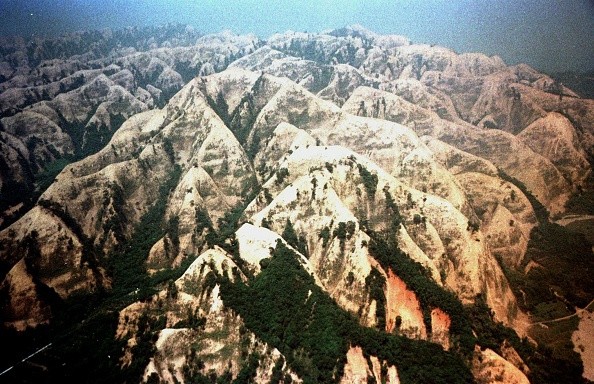Nantou, an ancestral homeland of the Seediq people, one of the 16 recognized aboriginal tribes in Taiwan, encountered countless landslides and disrupted agricultural traditions, which increased the risk of climate change in August.
The tragedy in Ren'ai township was one of countless landslides in the same month in Nantou, a landlocked county in central Taiwan, caused by severe rain from the whipping tail of distant typhoon Khanun.
Nantou Landslides Disrupt Agricultural Traditions

Taiwan is in a hot zone for typhoons and earthquakes, but mountain communities like Nantou were particularly exposed to extreme weather amid the climate crisis.
The central region of Taiwan has small towns and villages accessed by winding single-lane roads. Aboriginal tribes were making a living through their rich agriculture and preserving their ancient traditions.
In August, typhoon Khanun hit the mountain when two young women were working a shift at the town's service station. A downpour of water, mud, and rocks almost endangered their lives, but they ran next door for shelter, which saved their lives.
The typhoon led to the cancellation of autumn harvest ceremonies, an annual ritual that lasts up to a week in the mountain communities. Wang Wan-quan, a 70-year-old farmer in Nang Feng village in Nantou, said, "There is nothing to harvest."
He said their harvests were all destroyed by typhoons, covered by landslides, and damaged by heavy rain. He added that they could not celebrate anything as there were no crops to celebrate.
Wang shared that his income comes from growing tea and organic vegetables, and he said that whenever there is a typhoon, some people make money, and some people do not.
Furthermore, Zi-jun Zeng, the village head in Nang Feng, said that the rising temperatures have increased the risk of natural disasters, and the climate change led to disruption of ceremonies, change of harvest patterns, and the annual celebrations they need to celebrate, resulting to weakening of aboriginal culture.
He said that indigenous communities in Taiwan were all farming communities, and their culture was always connected to their land.
Read Also : Billie Eilish Requests Restraining Order After Man Sent Disturbing Messages to Family, Friends
Intense Climate Crisis in Taiwan
Climate scientists reported that extreme changes in weather could produce more typhoons such as cyclones or hurricanes.
Taiwan has been reproducing its drinking water from typhoons as the frequency of intense typhoons is continuously increasing. The landfall has reached record-breaking droughts.
Chen Guo-xiong Che, the major secretary for the township covering Nangfeng, has been adapting farming strategies like planting more trees among the monoculture tea and coffee fields.
Chen said, "I am worried about climate change." He said climate change has impacted the communities and those living in high altitudes. The downpour has been blocking the primary and farm roads, which restricts them from going to work, affecting their income and livelihood.
The villagers admitted that they were not afraid of natural disasters, but they hoped the government would help them have better construction and infrastructure.
Dr Lin Tze-luen, a spokesman for the executive branch of Taiwan's government, said they were preparing to respond to future disasters.
He said there has been a relocation debate for the mountain communities to ensure their safety. However, he noted indigenous culture was rooted in the mountains, and they could not let it affect their traditions.




